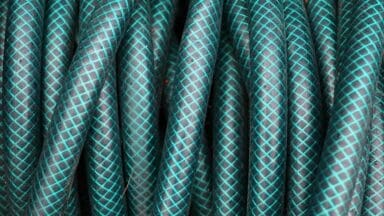
The Midlands saw the warmest spring on record and its driest in more than 50 years, followed by a hot start to summer as the thermometer hit 34C in parts of the UK this week. Rainfall in Staffordshire has also dropped significantly in June, with just 37% of what is normally expected, compared to around 50% in other counties in the Severn Trent region. In addition to high demand for water, there is unsurprisingly less water in reservoirs and rivers.
While there is no plan for a hosepipe ban yet, Severn Trent Water is urging Staffordshire customers, including in Stoke-on-Trent, Leek and Stafford, to be mindful of water usage.
Covering a substantial area, Severn Trent Water serves (mid) Wales, Gloucestershire, Shropshire, Herefordshire, Worcestershire, parts of Staffordshire and Stoke-on-Trent, Birmingham, Wolverhampton, Warwickshire, Derbyshire, Nottinghamshire and Leicestershire.
Doug Clarke, Water Resources Planning Lead at Severn Trent, said: “Across Staffordshire, we’ve been experiencing record temperatures, combined with significantly lower rainfall. We’ve also seen higher than normal demand in Staffordshire – particularly in Stoke-On-Trent, Stafford and Leek, which has been driven by the continued hot weather. The drop in rainfall and increasing demand for water means we need to ask Staffordshire customers to help save water where they can. Simple switches can make a massive difference.
“It is obviously very important to keep hydrated in the summer but there are plenty of ways we can all also be water wise. Tips include turning off taps when brushing teeth, using a watering can in the garden instead of a sprinkler and placing a jug of water in the fridge so customers can enjoy a nice cold glass, instead of running the tap.”
Severn Trent’s reservoirs are one of the company’s major sources of water, along with rivers and groundwater. The reservoirs are currently at 71% of storage capacity on average this week, but Tittesworth, which supplies the north Staffordshire area, is at 56%.
Clarke added: “With less rain and record dry weather, there’s of course less water in rivers and reservoirs. But there are ways we can all save water, which will help reduce demand on everyone’s water supplies and help the environment. We’ve been working over the last few years to make our network more resilient, including reducing leakage by a record 16% in the last five years. It’s also hugely important that we are all water wise so there’s always enough to go round.”

